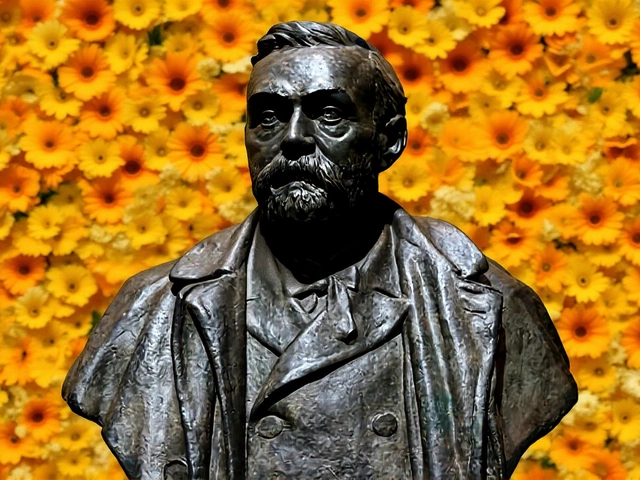On Tuesday, November 18, 2025, at 19:45 UTC, the Stadiumi Fadil Vokrri in Prishtinë will erupt as Kosovo hosts Switzerland in a do-or-die 2026 FIFA World Cup Qualifying - UEFA Group Stage clash. This isn’t just another qualifier—it’s the kind of match that defines generations. With Switzerland sitting atop Group B with 13 points (4-1-0), and Kosovo right behind at 10 points (3-1-1), the stakes couldn’t be higher. Win, and Kosovo could leapfrog into automatic qualification. Lose, and their World Cup dreams may hinge on a playoff path no one wants to take.
Why This Match Matters More Than the Table Suggests
The current standings look clean on paper: Switzerland has a three-point cushion. But look closer. Kosovo has played the same number of games. They’ve drawn with the top two teams in the group. They’ve beaten Slovenia away. And they’ve lost only once—in a 4-0 thrashing by Switzerland back in September. That result still stings. But it’s not the whole story. The twist? Kosovo has never beaten Switzerland in three meetings. Two draws. One loss. But those draws? Both came in high-pressure environments: a 2-2 stalemate in 2023 in Basel, and a 1-1 in 2022 in a friendly. This team, bruised but not broken, has shown it can hold its own. And now, with home advantage and a crowd that’s been waiting years for this moment, they believe.The Players Who Could Change Everything
For Switzerland, the engine is Breel Embolo. Five matches. Four goals. A striker who doesn’t just score—he creates chaos. Then there’s Granit Xhaka, the veteran captain whose leadership and passing range still dictate tempo. His two goals and consistent presence make him the heartbeat of the Swiss midfield. For Kosovo, the hope rests on Florian Asllani. Four games. Two goals. A 23-year-old forward who plays with a hunger you can’t coach. He’s not the biggest, but he’s the quickest, the most relentless. Add in Vedat Muriqi, who’s been the consistent goal threat since 2022, and Elbasan Rexhbecaj, the midfield glue who’s played every minute of the qualifiers, and you’ve got a team that’s more than the sum of its parts.A History Written in Draws and Heartbreak
The head-to-head record tells a story of imbalance—but also resilience. Three matches. Three times, Switzerland has held the upper hand. But in two of them, Kosovo didn’t fold. They fought back. They equalized. In 2023, they were down 2-0 in Basel… and came back to 2-2. That’s not luck. That’s character. The numbers back it up: 67% of past matches saw both teams score. Average goals: 3.33 per game. That’s not a defensive battle—it’s an open war. And with both teams needing points, expect fireworks. The average of 7.33 corners per game? That means wide play, crosses, set pieces. That’s where Kosovo can steal something.What’s at Stake Beyond the Points
The top two in Group B qualify automatically for the 2026 World Cup in Canada, Mexico, and the United States. Third place? A playoff lifeline—risky, unpredictable, and full of traps. For Switzerland, a win here seals their ticket. A draw? Still fine. A loss? Suddenly, they’re in danger of dropping to third. It’s rare for a team of their pedigree to need playoffs. They won’t let that happen. For Kosovo, this is about more than football. It’s about legitimacy. They’ve been fighting for recognition on the international stage since their UEFA membership in 2016. Every home game at Stadiumi Fadil Vokrri feels like a statement. Win this, and they’re not just competing—they’re contenders.
What Happens Next?
If Kosovo wins, they leap to 13 points—tied with Switzerland. Goal difference becomes the decider. If they draw? Still 11 points. Still in control. If they lose? They drop to 10, and the pressure shifts entirely to their final two games against Sweden and Slovenia. Switzerland’s schedule after this? A home game against Slovenia and an away match against Sweden. Both winnable. But if they slip up here, the pressure mounts. They’ve never lost a World Cup qualifier to a team ranked below them. This is their moment to prove they’re still elite.Behind the Scenes: The Stadium, the Crowd, the Silence Before the Roar
Stadiumi Fadil Vokrri holds just over 13,000. But on match nights, it feels like 100,000. The air smells of grilled meat and burning incense. The chants rise in Albanian, then echo in English, then in a mix of both. You can’t buy this energy. It’s built from years of exclusion, from being told they didn’t belong. Now, they’re on the cusp of something historic. The match will be broadcast in high definition across Europe and North America, though no broadcaster has been officially confirmed. But the real broadcast? It’s happening in homes in Prishtinë, in diaspora communities in Germany, in New York, in Zurich. Millions will watch. Millions will feel it.Frequently Asked Questions
How does this match affect Kosovo’s chances of reaching the 2026 World Cup?
A win puts Kosovo level on points with Switzerland and puts them in direct control of their destiny. Even a draw keeps them alive with 11 points, making their final two games against Sweden and Slovenia winnable. A loss, however, drops them to third and forces them into a playoff path that’s unpredictable and historically difficult for smaller nations.
Why is this match so important for Switzerland?
Switzerland has never missed a World Cup since 2006. A loss here could drop them into third place, forcing them into a playoff they’ve avoided for nearly two decades. With only three matches left, they can’t afford to slip. This is about legacy as much as qualification.
Who are the key players to watch in this match?
For Switzerland, Breel Embolo (4 goals) and Granit Xhaka (2 goals, steady leadership) are the difference-makers. For Kosovo, Florian Asllani (2 goals in 4 games) and Vedat Muriqi (1 goal in 5 games) carry the attacking burden, while Elbasan Rexhbecaj anchors the midfield. All have played every minute of the qualifiers.
What’s the historical significance of this fixture?
Kosovo has never beaten Switzerland in three meetings, but they’ve drawn twice under pressure. This match is their best chance to break that streak—and prove they’re no longer just a qualifier participant, but a genuine contender. The 4-0 loss in September was a wake-up call, not a death knell.
What does the crowd atmosphere at Stadiumi Fadil Vokrri mean for the match?
The stadium’s 13,000 capacity will be packed with a fanbase that’s endured decades of exclusion. The noise, the chants, the sheer emotion—this isn’t just home advantage. It’s psychological warfare. Swiss players have admitted in interviews that playing in Prishtinë is one of the most intense away experiences in European football.
Could this match impact future World Cup qualifying formats?
If Kosovo qualifies directly, it would mark the first time a nation with a population under 2 million has done so without a playoff—a milestone that could pressure UEFA to reconsider how smaller nations are grouped. Their rise has already inspired Albania and North Macedonia. A win here could change the entire narrative of European qualifying.





